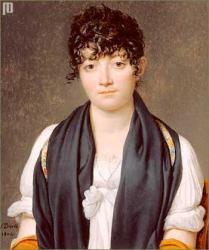Planning worship?
Check out our sister site, ZeteoSearch.org,
for 20+ additional resources related to your search.
- |
User Links
Search Results
Bleibe bei uns, denn es will Abend werden
Appears in 6 hymnals Used With Tune: [Bleibe bei uns, denn es will Abend werden]
Bleibe bei uns, denn es will Abend werden
[Bleibe bei uns, denn es will Abend werden]
Appears in 3 hymnals Composer and/or Arranger: L. Reichardt Incipit: 32343 24655 4331 Used With Text: Bleibe bei uns, denn es will Abend werden
[Bleibe bei uns, denn es will Abend werden]
[Bleibe bei uns]
Appears in 1 hymnal Incipit: 33436 54323 31334 Used With Text: Bleibe bei uns
[Bleibe bei uns]
Bleibe bei uns, denn es will Abend werden
Hymnal: Glockenklänge #209 (1904) Languages: German Tune Title: [Bleibe bei uns, denn es will Abend werden]
Bleibe bei uns, denn es will Abend werden
Bleibe bei uns, denn es will Abend werden
Hymnal: Lieder-Perlen #a19 (1894) Languages: German Tune Title: [Bleibe bei uns, denn es will Abend werden]
Bleibe bei uns, denn es will Abend werden
Bleibe bei uns, denn es will Abend werden
Hymnal: Unser Liederbuch #302 (1893) Languages: German Tune Title: [Bleibe bei uns, denn es will Abend werden]
Bleibe bei uns, denn es will Abend werden
Luise Reichardt

1779 - 1826 Person Name: L. Reichardt Composer of "[Bleibe bei uns, denn es will Abend werden]" in Glockenklänge Caroline Luise Reichardt Germany 1779-1826. Born in Berlin to middle class parents and musical composers, she received some formal education and musical training from her father and his friends, but also was self-taught. Her grandfather was Konzertmeister, and her father was Kapellmeister at the court of Frederick, the Great. Louise was musical and had a good voice. She played piano and sang. In 1800 four of her own compositions were published along with a collection of her father’s songs. The Reichardts entertained well-known literary figures of the day. She later used poetry from Phillip Ludwig Achim von Arnim in a collection of 12 songs she composed. In 1809 she settled in Hamburg, Germany, where she made a living as a singing teacher and composed music. She also organized and directed a women’s chorus. She did behind-the-scenes conducting of music when she could. She was known for her untiring efforts in the production of Handel choral works, translating and preparing texts and choruses to be conducted by male counterparts. She also translated the Latin works of Hasse and Graun into German. She played a significant role in the formation of the German choral movement, a driving force in 19th century musical nationalism. She composed 75+ songs and choral pieces in various styles and accompaniments. Her husband-to-be, Friedrich August Eschen, died suddenly on the eve before their wedding. Her second husband-to-be, a painter, Franz Gareis, also died before their wedding. She died at Hamburg, Germany.
John Perry
Luise Reichardt


 My Starred Hymns
My Starred Hymns


